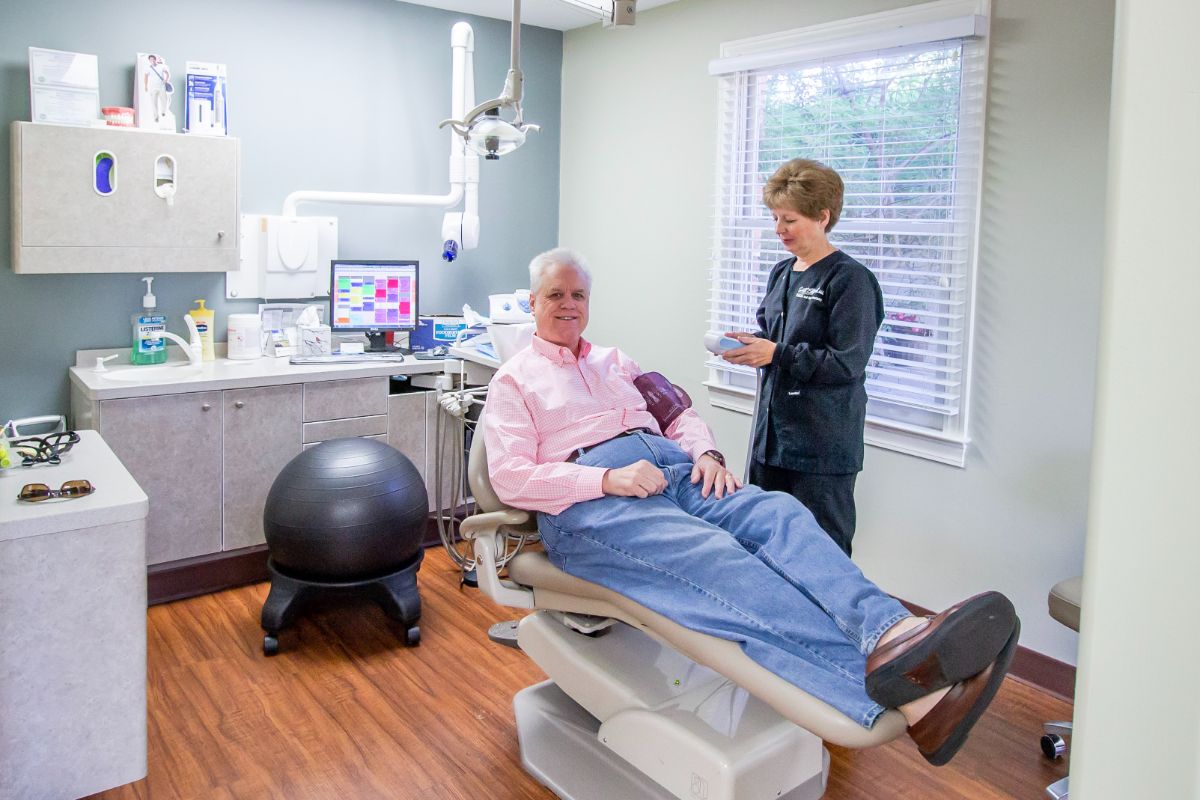It’s commonly said that “beauty is pain,” but no one should have to choose between having a beautiful, healthy smile and a comfortable one. If you’ve ever experienced pain or discomfort in your teeth in response to certain stimuli, you may be suffering from tooth sensitivity. At Scott Edwards DDS, we believe you should be able to enjoy a glowing smile without discomfort. To help you out, let’s take a look at what tooth sensitivity is and how it can be treated.
What is tooth sensitivity?
Also called “dentin hypersensitivity,” tooth sensitivity is exactly what it sounds like: pain or discomfort in the teeth as a response to certain stimuli, such as hot or cold temperatures. Some common triggers for tooth sensitivity are:
- Hot or cold food and beverages
- Sweet or acidic food and beverages
- Cold water (Especially during routine dental cleanings)
- Brushing or flossing teeth
- Alcohol-based mouth rinses
What are the different types of tooth sensitivity?
The type of tooth sensitivity may depend on the stimuli that triggers it. Here are some of the most common types of tooth sensitivity:
Dull ache near the sinus area
This type of sensitivity can appear on either one side or both sides of the sinus. It appears in the upper teeth area and can be quite uncomfortable. It can easily be confused with sinus pain, which is caused by congestion following a cold or flu.
Pain in a specific area, but not sure which tooth
Many patients may feel pain without being able to identify which specific tooth it’s coming from. When this happens, the pulp tissue of a tooth might be infected. This happens as a response to the decay which reaches the nerve area in the center of the tooth.
Pain after eating cold or hot food and liquids
We mentioned earlier that hot or cold is a common trigger for tooth sensitivity. If the pain lingers on for several hours, it can be a sign of deep tooth decay, physical trauma, or inflamed pulp. The pain can become severe if not addressed.
Pain when biting or chewing food
Speaking of food troubles, this type of sensitivity can be a sign of tooth decay, a loose filling, or a cracked/chipped tooth.

What causes tooth sensitivity?
Every patient is different, and some people naturally have more sensitive teeth than others due to having thinner enamel. The enamel is the outer layer of the tooth that protects it. In many cases, the tooth’s enamel can be worn down from:
- Brushing your teeth too hard
- Using a hard toothbrush
- Grinding your teeth at night
- Regularly eating or drinking acidic foods and beverages
There are a few other factors that can contribute to tooth sensitivity. Gastroesophageal reflux can cause acid to come up from the stomach and esophagus and may wear down teeth over time. Conditions that cause frequent vomiting, such as gastroparesis and bulimia, can also cause acid to wear down the enamel. Gum recession can leave sections of the tooth exposed and unprotected, also causing sensitivity.
Other conditions that can increase sensitivity are tooth decay, broken teeth, chipped teeth, and worn-down fillings or crowns that can leave the dentin of the tooth exposed. If this is the case, you will likely feel sensitivity in only one particular tooth or region in the mouth. Your teeth may be especially sensitive following dental work like getting fillings, crowns, or teeth bleaching. In this case. The sensitivity may also be confined to one tooth or the area surrounding the tooth that received dental work.
What are treatment options for tooth sensitivity?
The type of tooth sensitivity treatment you may consider will depend on what is causing the sensitivity. Our office may suggest one of a variety of treatments. A few treatment options include:
Desensitizing Toothpaste
Desensitizing toothpaste can help block pain associated with sensitive teeth after a few applications. It has compounds that help block the transmission of sensation from the tooth surface to the nerve. There are a variety of products available over-the-counter. Ask one of our dentists which product might work best for you.
Fluoride Gel
This option will include an in-office technique that will strengthen tooth enamel and reduce the transmission of sensations. Dr. Edwards may apply fluoride to the sensitive areas of your teeth to strengthen tooth enamel and reduce pain. We may also suggest the use of prescription fluoride at home, applied via a custom tray.
Surgical Gum Graft
If your tooth root has lost gum tissue, a small amount of gum tissue can be surgically taken from elsewhere in your mouth and attached to the affected site. This can protect exposed roots and reduce sensitivity. If gum tissue has been lost from the root, this will protect the root and reduce sensitivity.
Desensitizing or Bonding
Sometimes, exposed root surfaces can be treated by applying bonding resin to the sensitive root surfaces. These may be used to correct a flaw or decay that results in sensitivity. A local anesthetic might be needed.
Root Canal
If other treatments are not effective, our team might recommend a root canal. This is a procedure used to treat problems in the tooth’s soft core, also called a dental pulp. While this might seem like a significant treatment, it’s considered the most successful technique for eliminating tooth sensitivity. If sensitivity is severe and persistent and cannot be treated by other means, we may recommend this treatment to eliminate the problem.

Trust Scott Edwards Cosmetic and Family Dentistry
Dr. Scott Edwards and his associate Dr. Julia Prince have been providing quality treatment to patients for over 40 years. They are committed to providing the highest caliber of dental care in a warm and professional environment for you and your family. We want to provide you with all the knowledge you need to make your best oral hygiene decisions. For any questions or more tips on helping you take care of your teeth, give us a call or schedule an appointment at our East Memphis or Midtown offices today!
